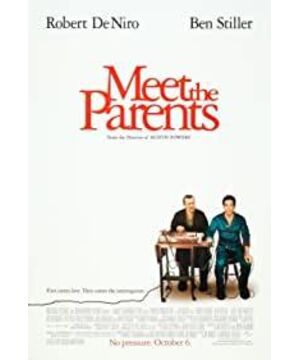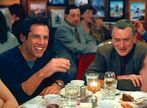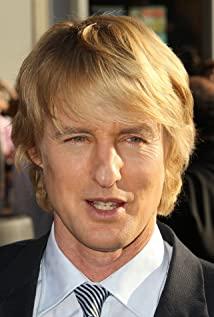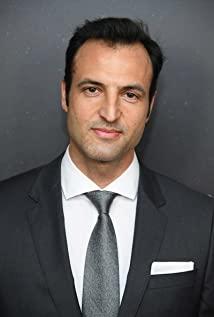This is a comedy of life. The film is divided into three parts, which were released in 2000, 2004 and 2010. De Niro does his part as the father-in-law in the film.
The film describes the daily lives of the young couple Greg and Pamela, Pamela’s parents Jack Burns, Dina and Greg’s parents Bernard and Rose. Greg is a male nurse and fell in love with Panmyra. Pamela’s father, Jack, participated in the Vietnam War before retiring and worked in the CIA for many years. He was very upright, but he was inevitably contaminated with these vices by accepting the instruction of "Lying is glory" for many years. From time to time, I lie to people and think that others are lying to myself. The old man's paranoia and self-righteousness made him doubt Greg for no reason, and Greg is not the kind of veteran hand with good feelings, resulting in a series of embarrassment. Greg opened the bottle and smashed the ashes of the old man’s mother; went to the roof to catch the cat and almost caused a fire; Greg had a "gay" in his name, and was mistaken by the school principal for thinking that they were gay. The two sons and Weng are very uncomfortable; Jack tried to use his spy skills to stalk Greg, but was counter-stalked by Greg; Jack challenged Greg, but was beaten by a heart attack. All of these seem to have encountered all the embarrassing things in many families.
I don't know whether their daily speech, behavior, behavior, and habits in the film are just "this one" of this family, or do they reflect "many people" in American families? Think of it as "this one" for the time being, so as not to be labeled as pro-American or hateful.
When I look at it, I can't help but think of Tolstoy's famous saying: "Happy families are all similar." The parents described in the film are short, those things, words and practices, in fact, they also exist here. Every family will encounter similar joys and similar troubles. The joy, anger, sorrow, joy, sorrow and reunion are the same in all families. The difference lies in how we deal with the unexpected but inevitably encountered problems. I like the way in the movie. One is to be tolerant. Kevin is Pamela's ex-boyfriend, and he still loves her after the breakup. Out of love for Pamela, Greg was also able to treat Kevin kindly and became friends with him. And Kevin is also restraining his emotions. Greg's father Bernard can tolerate the rumors of his wife, and his wife Rose can also understand that Bernard ran half the world to learn Spanish flamenco dancing. The second is to admit immediately if you have made a mistake. This is not easy for us Orientals. Because there is a concept of "face" in our traditional culture. But this problem does not exist among Westerners. In the film, Greg got into a catastrophe when no one saw him and nearly burned the house. Having made such a big mistake, he immediately admitted to everyone. This is their habit. These did not affect him to continue to fight secretly with his father-in-law. In life, everyone has their own problems and their own faults. There is no saint in the family, let alone the strong. Therefore, tolerance and the courage to admit mistakes are necessary conditions for family harmony. In modern society, happiness does not only come from emotions, but also from reason.
The film also expresses Greg's views on life and career. He graduated from medical school with excellent grades, instead of choosing to be a doctor, he became a rare male nurse. In his own words: "I think this profession is more suitable for me." Even in the United States, his choice made many people do not understand. Such as his brother-in-law and his parents. There is a bit of contempt inside and out. I think if something like this happens to us, most people think he is crazy. According to the prevailing concept, choosing a career is nothing more than fame and fortune. This is true in China and the same is true in the United States. Seeking for Daoliang is still the main consideration for career direction, followed by "name". But Greg ignored these, all he thought about was whether the profession was suitable for him. This idea comes from the inheritance of the family. There is a conversation between two relatives in the film, which is about this:
Bernard: "We have always cultivated Greg to have a sense of his own, and we don't want him to be too utilitarian, regardless of winning or losing, just for enthusiasm. We just hope that he likes what he does. Do you understand? Jack."
Jack: "I don't understand very well, Bernard. I think competition is the fundamental reason that makes the United States the only superpower in the world today."
After thinking about it carefully, what the two people said makes sense. In this jungle society, competition is of course the most important. As an old man in the CIA, Jack focused on this competition in the world. Of course there was nothing wrong with it. The same goes for us here. Call on everyone to work hard and be good scalpers and so on. But from another perspective, to encourage competition on the grounds of fame and fortune is to make people give up their interests and hobbies and do a famous and advantageous thing, although people are not necessarily willing to do this kind of thing. As a result, there are no personal preferences in the workplace, only the pursuit of fame and fortune. Every time people become bored with their work, fame and fortune are the best spurs and comforts for people. It is a need, but it is helpless.
When people no longer work for money and fame, but only for hobbies and interests, then the society progresses.
Ten years have elapsed from the first to the third film, and the characters in the film are aging. The same goes for De Niro. And his acting skills have become more proficient.
My score: 6.5.
View more about Meet the Parents reviews











